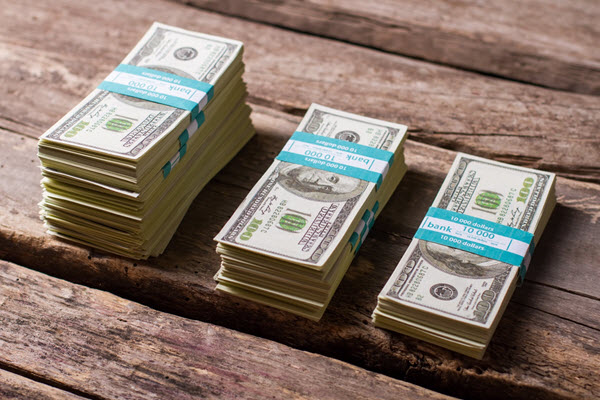Some home buyers don’t know the negative effect debt can have on a mortgage application. You don’t have to be debt-free to purchase a home, but excessive debt can reduce purchasing power or result in a higher mortgage rate.
When applying for a home loan, your lender pulls your credit report and credit score, and evaluates how much you owe on credit cards, auto loans, student loans, and more. When compared to your income, this information gives lenders an idea of how much you can spend on housing.
As a rule, your mortgage payment cannot exceed 28 to 30 percent of your gross monthly income. Your total monthly debt payments, which also include the new mortgage payment, shouldn’t exceed 36 to 43 percent of your gross monthly income. This maximum depends on whether you receive a conventional or an FHA home loan.
Although you’re allowed to spend up to 30 percent of your gross monthly income on housing, this doesn’t mean a bank will approve any amount up to this percentage. For example, if your loan or credit card payments take a chunk of your monthly income, a lender may say you only qualify for a mortgage with a payment up to 25 percent of your gross monthly income, which limits your options. Therefore, you should eliminate as much debt as possible before applying for a mortgage.
This not only increases affordability, less debt makes it easier to adjust to home ownership and new expenses. Debt elimination is easier said than done and it can take months or years to pay down balances. But there are ways to help wipe the slate clean faster.
1. Temporarily Downsize
Temporarily downsizing can provide extra cash to pay off debt. Once you finish paying off debt, begin saving for mortgage-related expenses, such as a down payment and closing costs. Average down payment minimums range from 3.5 to 5 percent, and closing costs can range from 2 to 5 percent of the loan balance. Consider getting a roommate to share expenses with, moving into a cheaper home on a temporary basis, or moving in with your parents to save money.
2. Sell Unused Items
It might be difficult to get rid of treasured belongings. However, if you focus on the big picture and think about your future home, it’ll be easier to unload stuff you don’t need and don’t use on a regular basis. The more you have, the more you have to maintain. Decluttering can put cash in your pocket and simplify your life. Make a list of items you no longer use. Plan a yard sale, list items for sale online, or work with a local consignment shop.
3. Pay Off Debt with Free Money
Some people get free money throughout the year, whether it’s an end-of-the-year work bonus, a sizable tax return, or cash as a gift. Planning a vacation or shopping spree is fun. A smarter approach, however, is using unexpected money to pay off credit cards and other loans. By doing so, you can eliminate your debt months sooner.
4. Consolidate to a Lower Interest Rate
Credit card debt is one of the hardest debts to erase because of high interest rates. See if you qualify for a 0% interest balance transfer credit card. These cards typically offer 0% interest for the first six to 18 months. Transfer all your balances to the new card. You’ll simplify your finances, and with no interest charges, one hundred percent of your monthly payments will go toward reducing the principal.
As you pay down your credit card balance, your credit utilization ratio improves. This can raise your credit score and help you qualify for a lower interest rate when you’re ready to get a mortgage.
5. Find a Second Income Stream
How much time do you spend watching TV or surfing the Internet every week? If you’re serious about paying down debt and getting a mortgage, get a part-time job a few days a week or think of a side businesses you can do. If you can earn an extra $150 a week, that’s an extra $600 a month or $7,200 a year. This can pay off your debt and help build a down payment fund.








